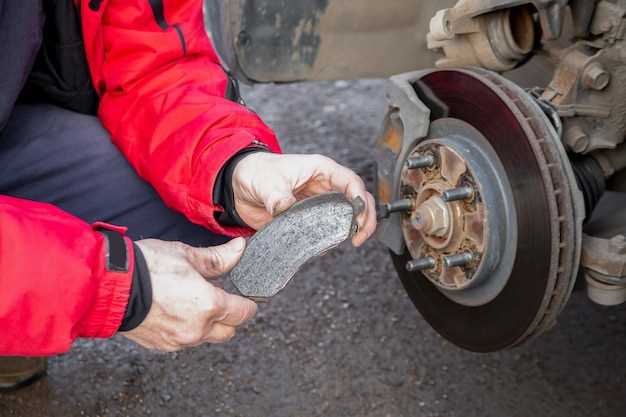Common Causes of Brake Noise

Brake noise in vehicles is a common issue that many drivers encounter. One of the most frequently reported noises is a squeaking sound when the brakes are applied. This noise can be not only annoying but also indicative of potential problems that may require immediate attention. Understanding the common causes of brake noise is essential for maintaining vehicle safety and performance.
There are several reasons why brakes may produce a squeaking sound. One primary cause is the wearing down of brake pads. When brake pads become thin, the metal backing can come into contact with the brake rotor, leading to a high-pitched noise. Additionally, moisture and debris can accumulate on the brake components, contributing to the squeaking sound. In some cases, the type of brake pad material used can also influence noise levels, with certain materials being more prone to causing unwanted sounds.
Another factor that can contribute to brake noise is improper installation or alignment of the braking system. If components are not fitted correctly, they can vibrate and create noise when the brakes are applied. Regular maintenance and inspection of the braking system are crucial for identifying these issues early and ensuring that the brakes operate smoothly. By recognizing the common causes of brake noise, drivers can take proactive steps to address any concerns and enhance their vehicle’s safety on the road.
Understanding Squeaking Sounds from Brake Components

Squeaking sounds from brake components can be a common issue for drivers, and understanding their root causes is essential in maintaining vehicle safety and performance. One possible reason for squeaking is the presence of dust, dirt, or debris on the brake pads or rotors. This accumulation can create friction, leading to unwanted noises when the brakes are applied.
Another factor contributing to squeaking could be the wear of brake pads. As these components deteriorate over time, they may lose their effectiveness and begin to emit a high-pitched sound, indicating that replacement is necessary. It is crucial to monitor brake pad wear to prevent further damage to the braking system.
Additionally, insufficient lubrication on brake hardware can result in squeaking. Certain brake components, such as caliper slides or backing plates, require lubrication to function smoothly. When these parts lack proper lubrication, metal-on-metal contact can occur, causing irritating squeaks during brake application.
Temperature changes can also influence brake noise. In colder conditions, certain materials used in brake pads may harden, leading to increased friction and squeaking sounds. Similarly, extreme heat can cause brake components to expand and contract, resulting in noises that may be perceived during operation.
Lastly, the type of brake pads used can significantly impact noise levels. Some materials, such as low-quality or metallic pads, are more likely to produce squeaking sounds than others. Opting for high-quality, noise-reducing brake pads can help alleviate this issue while enhancing overall braking performance.
In summary, squeaking sounds from brake components can stem from various causes, including dust contamination, worn brake pads, lack of lubrication, temperature fluctuations, and the quality of the brake pads themselves. Addressing these issues promptly can help ensure a quieter and safer driving experience.
Diagnosing Grinding Noises and Their Implications
Grinding noises during braking can indicate serious issues with a vehicle’s braking system. These sounds typically arise when brake pads wear down beyond their effective lifespan, leading to metal-on-metal contact. This not only compromises stopping power but can also cause significant damage to brake components, necessitating costly repairs.
One common cause of grinding is the depletion of the brake pad material. When pads are worn out, the brake rotors become exposed to the caliper and bracket, leading to a harsh grinding noise as the metal parts scrape against each other. It is critical to address this problem immediately to prevent rotor damage, which can increase repair costs substantially.
Another factor contributing to grinding noises can be debris or contaminants lodged between the brake pad and rotor. This foreign material can create irregular friction, resulting in an unpleasant grinding sound. Regular inspections can help identify these issues early, thereby preserving the integrity of the braking system.
Furthermore, improper installation of brake components may also lead to grinding noises. If brake pads are not aligned correctly, or if the wrong type of pads is used, the brakes could function improperly. This misalignment can create uneven wear and unnecessary noise, indicating a need for professional evaluation.
Ignoring grinding noises can have severe implications, including compromised safety on the road. As the braking system deteriorates, the risk of failure during operation increases, potentially leading to accidents. Therefore, if grinding is heard, it is crucial to seek immediate attention from a qualified mechanic to diagnose the issue accurately and ensure a safe driving experience.
Evaluating Solutions for Reducing Brake Noise

Brake noise can be a significant concern for vehicle owners, both in terms of comfort and safety. Identifying effective solutions is crucial for enhancing the overall driving experience. Here are several strategies that can be employed to reduce brake noise.
One of the most common approaches is using high-quality brake pads. Many generic pads produce more noise due to harder materials. Opting for premium pads made from noise-damping materials can significantly mitigate sound. These pads are specifically designed to minimize friction and vibration, which are primary contributors to noise.
Another solution involves ensuring that the braking system is properly lubricated. Applying lubricant to points where the brake components make contact can help reduce noise caused by friction. Areas such as backing plates and caliper brackets commonly benefit from lubrication, leading to smoother operation and less noise.
Regular maintenance and inspection of the braking system are essential. Worn-out components, such as disc rotors or drum shoes, can cause excessive braking noise. Regularly checking these components and replacing them when necessary can help maintain a quieter braking system.
Additionally, proper installation of brake components should not be overlooked. Ensuring that all parts are correctly fitted can prevent gaps that may lead to noise. It’s crucial to follow the manufacturer’s guidelines during installation to achieve optimal performance.
Lastly, utilizing noise-reducing products, such as shims and dampening materials, can further decrease brake noise. These components are designed to absorb vibrations and reduce the sound transmitted through the braking system, contributing to a quieter ride.
By evaluating these solutions and applying them as needed, vehicle owners can effectively reduce brake noise, leading to a more pleasant driving experience while maintaining the efficiency of their braking system.

